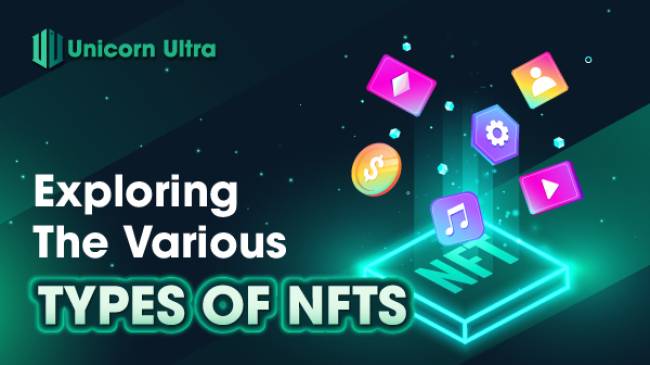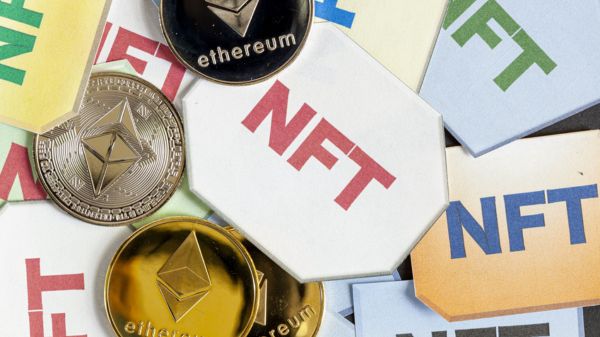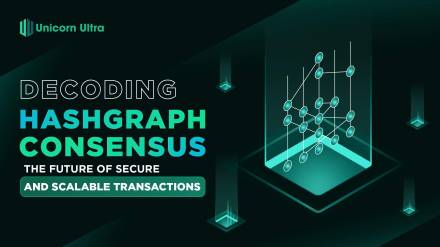In recent years, Non-Fungible Tokens (NFTs) have gained immense popularity in the digital world. These unique digital assets have revolutionized the concept of ownership, providing individuals with the ability to buy, sell, and trade digital items securely on the blockchain. NFTs come in various forms, each offering a distinct value proposition. In this blog, we will explore the different types of NFTs and understand why they have become so valuable.
Table of Contents
Different Types of NFTs

PFPs and Avatars
Profile picture (PFP) NFTs and avatars have become extremely popular in the digital art space. These NFTs represent unique, customizable digital characters that individuals can use to personalize their online presence. PFP NFTs have gained significant attention in the form of community-driven projects and social network profile pictures.
One-of-one (1/1) Artwork
One-of-one artwork NFTs are digital representations of unique pieces of art. Artists can tokenize their creations, ensuring that each piece is verifiably scarce. These NFTs have become a revolutionary way for artists to monetize their work and provide collectors with ownership of rare and exclusive digital art pieces.
Generative Art
Generative art NFTs are algorithmically created artworks. Artists write computer programs that generate unique visual compositions, often with variations or permutations. Each generative art piece within a collection possesses distinct characteristics, making it valuable to collectors seeking one-of-a-kind creations.
Collectibles
NFT collectibles encompass a wide range of digital items, including virtual trading cards, digital toys, and virtual pets. These NFTs are often part of limited series or editions, with each collectible having unique attributes, creating rarity and value for collectors.
Photography NFTs
Photography NFTs allow photographers to sell their digital images as unique tokens on the blockchain. By tokenizing their work, photographers can protect their copyright and offer limited editions or exclusive prints to collectors, ensuring the uniqueness and value of each NFT.
Music NFTs
Music NFTs provide a new way for artists to release their music and engage with fans. Musicians can sell unique records, albums, or even individual songs as NFTs, giving buyers ownership and access to exclusive content. Music NFTs can also include additional perks such as backstage passes or VIP experiences.
Gamified NFTs
Gamified NFTs combine the world of gaming and digital ownership. Players can acquire unique in-game items, characters, or virtual real estate as NFTs. These NFTs can be traded, used in gameplay, or even rented out to other players, creating a thriving marketplace within the gaming ecosystem.
NFT Event Tickets
NFT event tickets offer a secure and verifiable way to sell, buy, and transfer tickets for concerts, conferences, or sporting events. These tickets are stored on the blockchain, ensuring authenticity and eliminating the risk of counterfeiting.
Membership Passes
Membership passes as NFTs provide access to exclusive communities, clubs, or subscription-based services. These NFTs often come with additional benefits, such as early access to content, exclusive events, or special discounts.
Domain Names
Domain names can also be represented as NFTs. By tokenizing domain names, individuals can buy, sell, and trade these unique digital assets on blockchain-powered marketplaces. Domain name NFTs offer a new way to manage and transfer ownership of internet addresses.
How to distinguish types of NFTs?
To distinguish different types of Non-Fungible Tokens (NFTs), you can consider various aspects, including their underlying characteristics, functionalities, and uses. Here are some key factors to help differentiate NFT types:
- Ownership and Authenticity: NFTs represent ownership of unique digital assets, and each NFT has a distinct identifier tied to it. Differentiate NFTs based on the authenticity and provenance of the digital asset they represent. Some NFTs may have additional verification mechanisms or certificates of authenticity associated with them.
- Digital Asset Types: NFTs can represent various types of digital assets, such as artwork, collectibles, virtual real estate, domain names, music, videos, virtual goods, and more. Distinguish NFT types based on the specific digital asset they represent or the industry they are associated with.
- Interoperability and Standards: NFTs can adhere to different technical standards or protocols, such as ERC-721, ERC-1155, or others specific to certain blockchain platforms. The choice of standard may affect the functionality, compatibility, and ease of transferability of the NFTs across different platforms or marketplaces.
- Utility and Functionality: Some NFTs have inherent utility or functionality beyond ownership representation. These can include NFTs used in gaming, virtual worlds, decentralized finance (DeFi) protocols, governance mechanisms, or providing access to exclusive content or experiences. Differentiate NFTs based on their specific use cases and the utility they provide.
- Rarity and Scarcity: Consider the rarity and scarcity of NFTs. Some NFTs may have limited editions, unique attributes, or properties that make them more valuable or desirable. Rarity can be determined by factors such as the number of editions, specific characteristics, or historical significance of the digital asset.
- Licensing and Royalties: Some NFTs incorporate licensing or royalty mechanisms, allowing creators to earn ongoing revenue from secondary sales or usage of the digital asset. These NFTs can provide a differentiation factor for artists and content creators.
- Intellectual Property Rights: NFTs can represent ownership of intellectual property rights, including copyrights, trademarks, or patents. These NFTs differentiate themselves by offering legal ownership of intellectual property assets.
- Project or Brand Affiliation: Certain NFTs may be associated with specific projects, brands, or collaborations. These NFTs can carry additional value due to their connection with well-known entities, influential creators, or popular brands.
When distinguishing NFT types, it's crucial to research and understand the specific attributes, characteristics, and functionalities of each NFT. Pay attention to the details provided by the creators or issuers of the NFTs, review associated documentation, and refer to the respective blockchain platforms or marketplaces where the NFTs are listed for further information.
The NFT space is dynamic and evolving, with new types and innovations emerging regularly. Stay updated with industry news, developments, and evolving standards to keep track of the latest NFT types and their unique features.
Why are NFTs Valuable?

NFTs hold significant value due to their unique characteristics and the underlying blockchain technology. The scarcity, provenance, and immutability provided by NFTs contribute to their value proposition. Additionally, NFTs offer artists and creators new revenue streams and direct engagement with their audience. Collectors, on the other hand, are drawn to the exclusivity and potential for appreciation that NFTs provide. The ability to prove ownership, track provenance, and facilitate peer-to-peer transactions in a decentralized manner make NFTs a valuable asset class in the digital landscape.
What are the benefits of owning an NFT?
Owning an NFT (Non-Fungible Token) offers several benefits, which contribute to the growing popularity and appeal of these digital assets. Here are some key advantages of owning an NFT:
- Proof of Ownership and Authenticity: NFTs provide verifiable proof of ownership and authenticity for digital assets. Each NFT is unique and has a distinct identifier recorded on the blockchain, ensuring transparency and immutability of ownership records. This authentication feature is particularly valuable for digital artworks, collectibles, and other unique creations.
- Scarcity and Rarity: NFTs can represent rare or limited-edition digital assets. Artists or creators can issue NFTs with specific attributes, limited supply, or unique qualities, making them more desirable and valuable. The concept of scarcity enhances the perception of exclusivity and can increase the worth of an NFT.
- Transferability and Liquidity: NFTs are easily transferable, allowing owners to buy, sell, or trade them on various online marketplaces or platforms. This liquidity provides owners with the opportunity to monetize their digital assets and access a global market of collectors and enthusiasts. NFT marketplaces enable easy discovery, transaction facilitation, and instant settlement for buyers and sellers.
- Artist/Creator Royalties: NFTs can incorporate smart contracts that automate royalty payments to artists or creators. This means that whenever an NFT is resold on a secondary market, the original creator receives a predetermined percentage of the sale price. Royalty mechanisms enable artists to earn ongoing revenue from the appreciation and secondary sales of their digital creations.
- Programmability and Interoperability: NFTs can be programmable, allowing for additional functionality and interactions. Smart contracts can enable NFTs to have utility within specific applications, games, or platforms, granting access to exclusive content, in-game benefits, or membership privileges. NFTs can also be interoperable across different platforms, facilitating seamless transfer and utilization of digital assets.
- Community and Social Engagement: Owning an NFT often grants access to vibrant communities and social networks centered around specific artists, creators, or projects. NFT communities foster interaction, collaboration, and shared experiences among like-minded enthusiasts, creating a sense of belonging and shared ownership.
- Immersive Digital Experiences: NFT ownership can unlock unique digital experiences, such as virtual reality (VR) exhibitions, augmented reality (AR) activations, or exclusive content releases. NFTs can grant access to virtual worlds, virtual events, or personalized interactions with artists and creators, enhancing the overall ownership experience.
It's important to note that the value and benefits of owning an NFT can vary significantly based on factors such as the reputation of the creator, the desirability of the digital asset, and market demand. As with any investment or ownership of digital assets, it's crucial to conduct thorough research, understand the risks involved, and make informed decisions based on your own preferences and circumstances.
.jpg)
How to protect NFT from hacking?
Protecting your NFT (Non-Fungible Token) from hacking requires implementing robust security measures to safeguard your digital assets. Here are some essential steps to help protect your NFTs:
- Choose a Secure Wallet: Store your NFTs in a secure wallet that provides strong security features. Consider using a hardware wallet, such as Ledger or Trezor, which keeps your private keys offline and adds an extra layer of protection against hacking attempts.
- Enable Two-Factor Authentication (2FA): Utilize 2FA for your wallet and any associated accounts or platforms used to manage your NFTs. Two-factor authentication adds an additional layer of security by requiring a second verification step, typically through an authentication app or SMS code, when accessing your accounts.
- Keep Software Up to Date: Ensure that your wallet software, operating system, and any other relevant software are kept up to date with the latest security patches. Regularly updating your software helps protect against known vulnerabilities and security risks.
- Be Wary of Phishing Attempts: Beware of phishing attempts, which are fraudulent attempts to obtain your sensitive information by impersonating legitimate entities. Be cautious of suspicious emails, messages, or links that request your wallet credentials or private keys. Always verify the authenticity of the source before providing any personal or sensitive information.
- Use Strong and Unique Passwords: Create strong and unique passwords for your wallet and associated accounts. Avoid reusing passwords across multiple platforms. Consider using a password manager to generate and securely store complex passwords.
- Backup Your Wallet: Regularly backup your wallet and securely store the backup in a location separate from your device. This backup ensures that you can recover your NFTs in case of loss, theft, or hardware failure.
- Be Cautious of Public Wi-Fi: Avoid accessing your wallet or conducting NFT-related transactions on public Wi-Fi networks. Public networks are generally less secure, making it easier for hackers to intercept data. Use a secure and private network when interacting with your NFTs.
- Research and Verify Marketplaces: Before buying or selling NFTs on marketplaces, conduct thorough research to ensure the marketplace has a strong reputation for security. Verify the authenticity and legitimacy of the marketplace, and consider using established and reputable platforms.
- Educate Yourself: Stay informed about the latest security best practices and emerging threats in the NFT space. Stay updated on security news, industry developments, and any vulnerabilities that may affect your NFT holdings.
By implementing these security measures, you can significantly reduce the risk of hacking and protect your NFTs from unauthorized access or theft. Additionally, consider consulting security experts and following the guidelines provided by the wallet and platform providers you use.
NFTs have introduced a new era of digital ownership, allowing individuals to own and trade unique digital assets securely. From PFPs and artwork to music, collectibles, and gamified experiences, the diverse types of NFTs caters to a wide range of interests. With their inherent value and the endless possibilities they present, NFTs have undoubtedly revolutionized the way we perceive and engage with digital content, paving the way for a more decentralized and inclusive digital future. Let's go with Unicorn Ultra to follow the latest information on the market.






